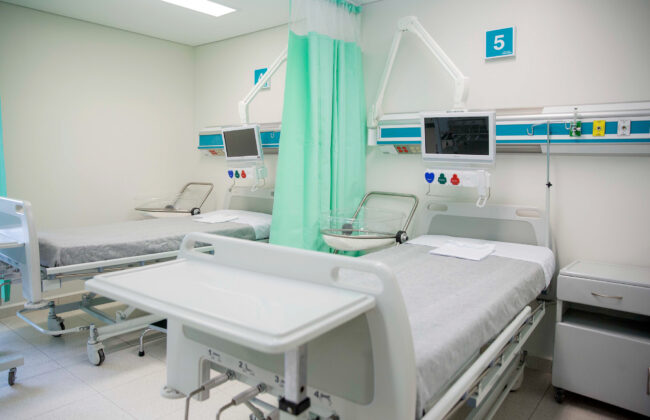Intensive Care Unit (ICU) patients have drastically different gut bacteria compared to healthy people – making them vulnerable to serious infection while in hospital. According to a study published in microbiology journal mSphere, the levels of health-promoting microbes are significantly depleted in ICU patients, with higher levels of pathogenic bacterial strains also present, an imbalance that worsens during a patient’s hospital stay1.
Skin, stool and oral samples were taken from 115 ICU patients in four North American hospitals. The bacterial populations in each sample were first analysed 48 hours after admission to the hospital, and then again either when the patient was discharged or after they had spent 10 days in the ICU. Alongside these samples, the researchers also recorded what food the patients ate, the treatment they received and any infections they developed.
What makes the gut microbiome healthy remains poorly defined. However, to aid their study, the researchers used American Gut, a crowd-funded citizen science project aiming to characterise the human microbiome2. Compared to a healthy subset of people in the American Gut database, the ICU samples showed lower levels of two of the gut’s largest groups of microbes, Firmicutes and Bacteroidetes. Higher levels of Proteobacteria, which include many pathogens, were also found in the ICU patients. Most strikingly, patients’ microbiomes changed quickly, with a rapid rise in disease-associated organisms within only days of admission. Some microbiomes even resembled those of corpses.
The population of healthy bacteria can be reduced by a number of treatments used in the ICU, such as antibiotics and blood pressure medicines – and even just a lack of nutrition. However, a deeper understanding of this could lead to targeted treatment. Tracking the microbiome like other vital signs could identify potential problems before they become symptomatic, with therapies, such as probiotics, used to restore bacterial balance and reduce the risk of infection. As hospital-acquired infections can potentially lead to organ failure and death, understanding the microbiome could have a significant impact on health worldwide.
References
- More information on the study can be found here: https://www.asm.org/index.php/journal-press-releases/94540-icu-patients-lose-helpful-gut-bacteria-within-days-of-hospital-admission with the full study found here: http://msphere.asm.org/content/1/4/e00199-16
- More information about the project can be found here: http://americangut.org/

